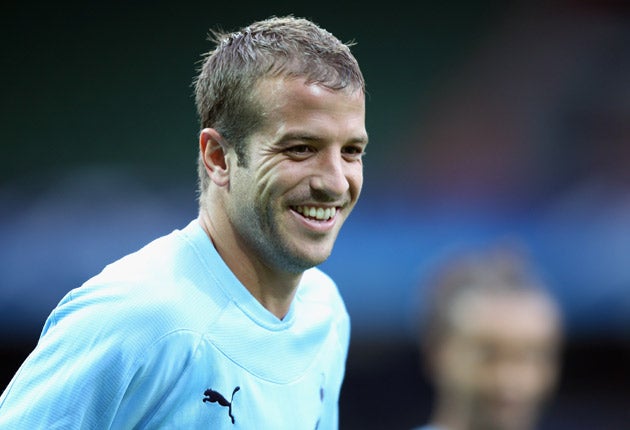Fifa brings in new transfer system to stop clubs 'playing chicken'

Your support helps us to tell the story
From reproductive rights to climate change to Big Tech, The Independent is on the ground when the story is developing. Whether it's investigating the financials of Elon Musk's pro-Trump PAC or producing our latest documentary, 'The A Word', which shines a light on the American women fighting for reproductive rights, we know how important it is to parse out the facts from the messaging.
At such a critical moment in US history, we need reporters on the ground. Your donation allows us to keep sending journalists to speak to both sides of the story.
The Independent is trusted by Americans across the entire political spectrum. And unlike many other quality news outlets, we choose not to lock Americans out of our reporting and analysis with paywalls. We believe quality journalism should be available to everyone, paid for by those who can afford it.
Your support makes all the difference.Fifa chiefs believe clubs will stop "playing chicken" near transfer deadline when their new online system for players comes into force this week.
All international transfers will have to got through Fifa's Transfer Matching System (TMS) from tomorrow.
The world governing body believes the system will prevent money laundering, protect minors and make transfers more transparent. Clubs will have to declare whether there is any third party ownership of a player – the issue that caused the Carlos Tevez controversy at West Ham – or risk being sanctioned.
One aspect of the system is that as soon as the transfer deadline is passed, it shuts down and prevents any more transfer activity.
Mark Goddard, the general manager of TMS, told reporters: "It's no longer a good idea to play a game of chicken in the negotiations for transfers. Over the last two-and-half years we have seen examples of big clubs like Real Madrid who last year came out very early in the transfer market and did their business in the first two weeks of the window.
"They avoided leaving it until the last minute as they didn't want to risk playing a game of chicken with a computer system which would say time has run out."
Goddard said there were no grey areas with the online system – for example when Tottenham Hotspur signed Rafael van der Vaart from Real Madrid minutes before the transfer deadline, it was all done within the computer system's time limit.
On third-party ownership of players, Goddard said clubs risked sanctions ranging from fines to points deductions and transfer bans if they made false statements.
He added: "For every single transfer it is mandatory for both clubs to declare that there are no third party influences on this transfer. That means we have an electronic record and if it appears that is not a truthful statement we can go back to the transfer in the system and remind the club or the association what they said on the record."
More than 30 details on each transfer have to be entered, such as information on the player, club details, all payments including the amount, timing and bank details, as well as agents involved and the payments to them. Documentary evidence backing up the details must also be uploaded onto the system.
The system will also keep track of individual players to ensure proper compensation payments for clubs that have trained young players but have then seen them transferred.
Fifa president Sepp Blatter said: "This is a historic moment for football. TMS is a relatively simple online system but it will have a tremendous impact on the international transfer of players.
"Thanks to TMS, football's authorities have more details available on each and every transfer. The most important thing is that it increases the transparency of individual transactions and helps us to tackle issues such as the fight against money laundering and the protection of minors in transfers."
Meanwhile, South Africa have declared their interest in hosting the 2015 African Nations Cup. The country, which was the scene for this year's World Cup finals, has already hosted the event in 1996, when they won the crown.
Now, fresh from the success of the global spectacle, it is looking to bid for the tournament once again. South African Football Association (SAFA) president, Kirsten Nematandani, said: "Yes, we have put in a request to the Confederation of African Football.
"We are still (enjoying) the success of the World Cup and we hope it will be good for us in our bid to host the African Nations Cup."
Egypt, Tunisia, Sudan, Ethiopia, Ghana and Nigeria have all hosted the event more than once. The next tournament in 2012 will be held jointly by Gabon and Equatorial Guinea, followed by Libya in 2013 – when the tournament is moved for the first time to odd years to avoid a clash with future World Cups.
Nematandani believes no major developmental changes will be required for South Africa, with everything in place after a successful World Cup. He added: "There will be no question of infrastructure because it is here, accommodation is here. There will be no question of transport because it is here. World-class stadiums are here too. We have everything.
"We are going to update the government about this development."
Join our commenting forum
Join thought-provoking conversations, follow other Independent readers and see their replies
Comments